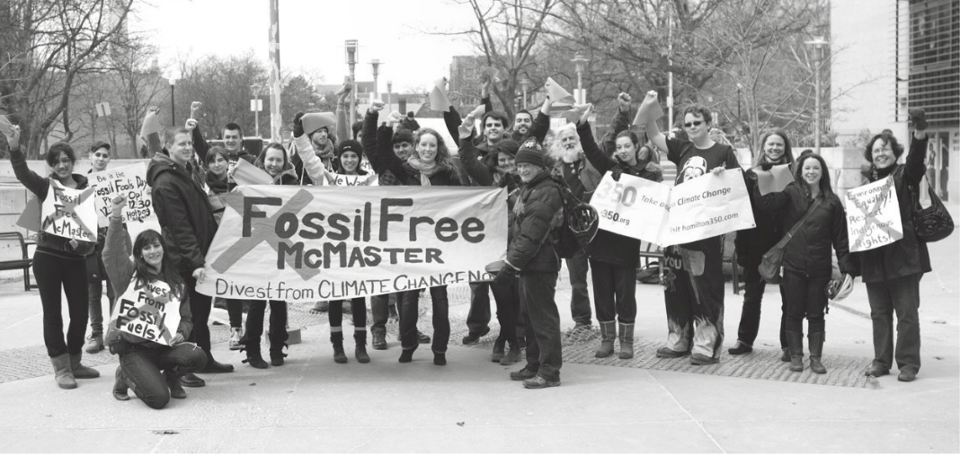Jared Diamond popularized the idea that environmental problems like climate change and ocean acidification expose our global civilization to the risk of collapse. Exactly how many casualties would result from a collapse of human civilization is difficult to enumerate precisely but it is safe to say the casualties could be in the billions.
If we acknowledge these risks then climate change is one of the most morally significant problems our species has ever faced.
We are all morally accountable for our changing climate and we should dole out justice according to a spectrum of responsibility. On one end of the spectrum we have people who are contributing most to climate change and on the other end we have those of us who are working towards mitigating this problem.
When people are morally and legally held accountable, especially as the consequences of climate change continue to wreak havoc on our biosphere, we should try to associate each culprit with his/her climate footprint.
There are direct and indirect fossil fuel emissions. Canadians, who often live in large houses and drive large cars, and fly more frequently, are all contributing disproportionately to climate change and it is quite easy to tabulate the exact quantity of carbon emissions that are released directly as a result. However it is possible to have an even greater impact on carbon emissions indirectly.
Systemic changes like a price on carbon are essential to reach greenhouse gas emissions targets. The impact we have on whether our community adopts these changes can be thought of as indirect involvement in carbon emissions.
People like Stephen Harper, who has done so much to undermine national climate change mitigation policies — like a “job killing carbon tax” — and to sabotage global climate change agreements, may someday be tried in a court of law, or by God, or maybe just by his own conscience for his role in contributing to the deaths of millions and possibly billions of people.
Those of us with a strong grasp of the risks involved with climate change can understand what a morally outrageous statement it was when Peter Kent said that the many awards Canada won for obstructing progress at climate change conferences were “worn with honour.”
The people behind the fossil fuel industry and the lobbyists they pay to corrupt our democratic process are also largely responsible. Perhaps the most visible of these entities is the Canadian Association of Petroleum Producers. These lobby groups also fuel the small but vocal climate change denial community.
There is a thin line between the Canadian government and the oil industry and it is hard to say who is more at fault for Canada’s climate blunders. Who committed the worst crime: the assassin or the person who hired him?
Since Canada is still theoretically a democracy, it is important to acknowledge the role of Canadian voters who gave Harper the false majority that he currently holds in the House of Commons. Whether many of these citizens are informed about the dangers of climate change might be morally significant (because their intentions might not be poor.)
Regardless, we have a Conservative majority full of the most dangerous climate criminals on earth. From a consequentialist’s perspective there is a small moral distinction between Canadians who voted Harper in and those who do not vote at all. Both Conservative voters and non-voters are greatly responsible for this Conservative government.
The other four major parties seem to be much more progressive on the climate change issue but this also means that the climate vote is divided four ways, which is problematic under our first-past-the-post electoral system. An effective change activist would work towards political cooperation and vote strategically against Stephen Harper.
Being engaged in the democratic process requires much more than showing up to the polls during elections. It is important to work with our political parties to influence them to move in the right direction.
So what about people involved in climate change advocacy? What about engineers who are designing low carbon energy, and transportation and energy conservation strategies? What about policy makers who are championing carbon pricing initiatives? What about teachers and journalists who are educating people about global warming? We sit toward the virtuous end of the moral spectrum but have we exceeded our moral obligations?
Our species is desperately failing to mitigate climate change. We all have to do more. Consider how many Canadians expected soldiers to fight and die during World War II. There is no sacrifice too large when it comes to solving a problem that is so immense that it threatens the existence of civilization as we know it. We must not rest until we get on track to meet our climate change targets.
By evaluating moral accountability we are assigning blame and perhaps one day we will also see justice doled out in the court of law. Yet, this finger pointing also serves as an opportunity for Canadians to wake up and atone for our past emissions, regardless of whether climate change victims ever see justice.
The fewer greenhouse gas emissions in the atmosphere, the less instable this planet will be. It is never too late to add more energy to the struggle to mitigate climate change.
Dante Ryel has an Honours BA in Philosophy and Mathematics from York University and is currently studying Energy Systems Engineering at Mohawk College. He is a co-chair of the System Change not Climate Change group in the Hamilton Chapter of the Council of Canadians and sits on the committee of Hamilton 350.
Photo: climatechangehamilton.ca



